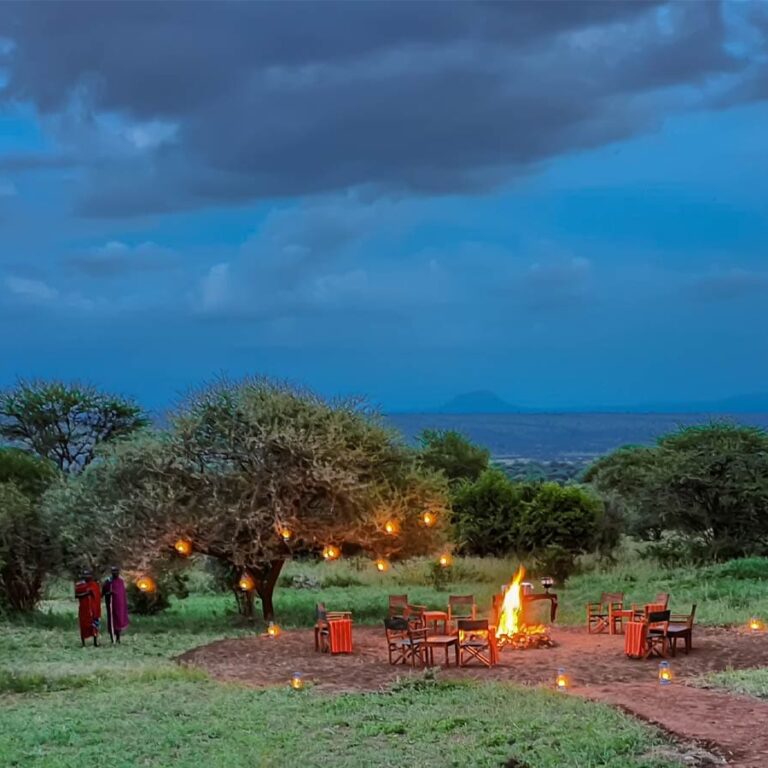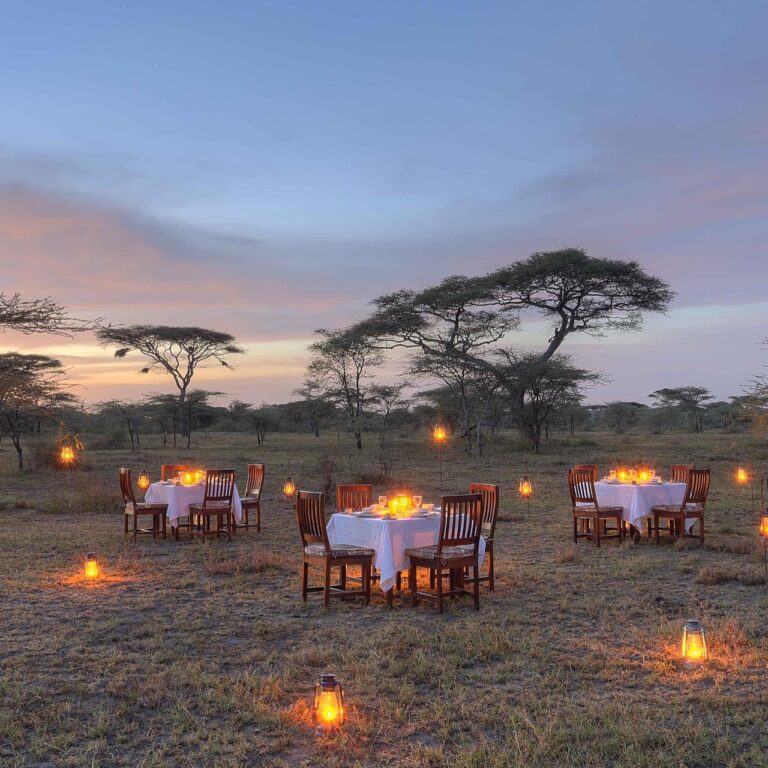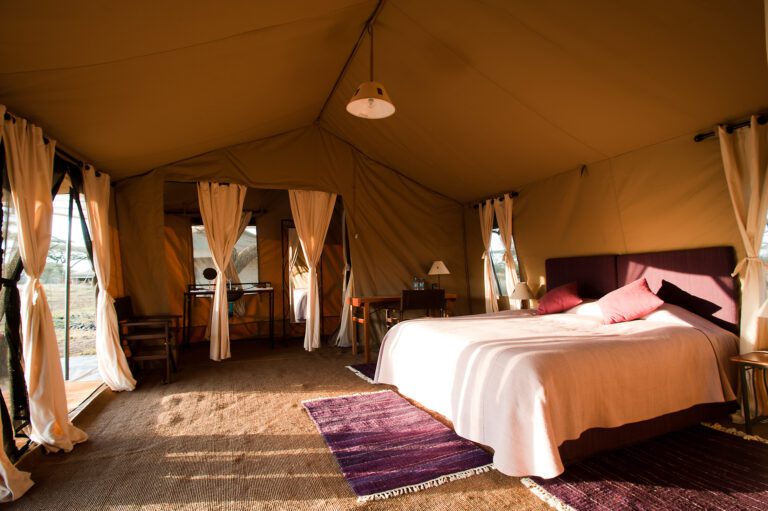To book a sustainable African safari, research eco-friendly tour operators and lodges, choose private conservancies or reserves, and prioritize ethical practices during your trip. Consider joining conservation-based safaris and minimizing your environmental impact by limiting time spent on safari and avoiding animal products. Booking well in advance, especially for popular destinations or during peak season, is recommended. The African safari, an age-old dream for many, is a journey into the heart of a continent brimming with life. It’s a chance to witness majestic lions, colossal elephants, and towering giraffes in their natural habitats. But as the world becomes more aware of its environmental and social footprint, the way we travel must evolve. A safari is no longer just about the thrill of the chase; it’s about preserving the very wilderness we’ve come to admire. Booking a sustainable African safari is a commitment—a pledge to protect wildlife, support local communities, and minimize your impact. It’s about trading a fleeting adventure for a lasting legacy. Here’s your ultimate guide to becoming a conscious explorer and crafting a safari that is as meaningful as it is memorable.
1. Choose an Ethical African Safari Operator
Your choice of a safari operator is the single most important decision you’ll make. A truly ethical operator goes beyond the glossy brochures and promises. They are the guardians of the land, the advocates for its people, and the champions of its wildlife. Seek out operators with transparent policies on conservation and community engagement. Look for certifications from recognized bodies like the Global Ecotourism Network (GEN) or the African Responsible Tourism Awards. Ask them directly: How do they support local guides? What is their stance on animal welfare? Do they give back to the communities they operate in? A reputable operator will not only have answers but will be proud to share their initiatives with you.
2. Research Wildlife Conservation Efforts
A safari’s purpose is to see wildlife, but a sustainable safari’s purpose is to protect it. Before booking, research the country’s and the specific region’s conservation efforts. Understand the challenges the local wildlife faces, whether it’s poaching, habitat loss, or human-wildlife conflict. Many parks and reserves, particularly in countries such as Kenya, Tanzania, and South Africa, are at the forefront of conservation efforts. Some operators contribute directly to these efforts through fees, donations, or by employing and training anti-poaching units. A safari with such an operator is more than a vacation; it’s a direct investment in the future of these magnificent creatures.
3. Consider Accommodation Options
Where you rest your head at night matters just as much as what you see during the day expect to choose our top eco-friendly Lodges in East Africa, Tanzania. Ditch the large, high-impact lodges for more intimate, eco-friendly alternatives. Boutique lodges and tented camps often have a smaller footprint and are designed to blend seamlessly with the natural environment. Look for accommodations that use renewable energy, practice responsible waste management, and source their food locally. Many of these camps also serve as pillars of the community, providing employment and a market for local goods. By staying at these places, you’re not just a guest; you’re a partner in their mission among the best destinations for sustainable African safari honeymoons or family friendly.
Top-rated Tanzania sustainable properties, eco-friendly safari lodges, offer a fantastic opportunity to experience the wonders of nature while minimizing your environmental impact. Several lodges across Africa and beyond are leading the way in sustainable tourism practices, focusing on renewable energy, water conservation, community development, and wildlife conservation.
4. Plan Your Sustainable African Itinerary Wisely
The modern traveler often feels the urge to see it all, but a sustainable safari is about quality over quantity. Instead of a whirlwind tour of multiple national parks, consider spending more time in one or two areas our ultimate beginner’s guide to sustainable travel. This reduces your carbon footprint from travel and allows for a deeper, more immersive experience. Opt for activities that are low-impact, such as walking safaris or canoeing, which offer a different perspective and a more intimate connection with the environment. Avoid activities that exploit animals, such as riding elephants or interacting with captive predators. A truly wild encounter is a respectful one.
5. Engage with Local Communities
The human element of a safari is just as important as the wildlife. The communities surrounding national parks and reserves are often the ones who bear the brunt of conservation efforts. A sustainable safari empowers and benefits these communities. Seek out opportunities to interact with local people in a respectful and meaningful way, responsible choices for your family, honeymoon, luxury, mid-range, budget eco-safari. Visit a community-run craft market, a local school, or a cultural village. A genuine operator will facilitate these interactions in a way that is mutually beneficial and avoids a “human zoo” dynamic. It’s about sharing a part of their world, not just observing it.
6. Pack Your Sustainable African Safari Mindfully
Your Eco-Friendly Safari in Africa luggage can be a statement of your values checklist for a sustainable safari. Pack light to reduce the weight on aircraft and safari vehicles, which in turn reduces fuel consumption. Choose eco-friendly products, from biodegradable toiletries to reusable water bottles. Many camps have systems in place to filter water, so you won’t need to rely on single-use plastic bottles. Consider packing a small, solar-powered charger for your electronics. And remember to bring durable, long-lasting clothing that can withstand the rigors of a safari without needing frequent replacements. Every item you bring, or don’t bring, contributes to your overall footprint.
7. Capture Memories Respectfully
The Ethical African Safari Experience’s desire to capture every moment on camera is understandable, but it’s crucial to do so with respect. Be mindful of your sustainable African Safaris for the conscious traveler’s presence and your equipment. Don’t use flash photography at night, as it can disorient nocturnal animals. Maintain a safe and respectful distance from wildlife, and don’t pressure your guide to get closer for the perfect shot. The best photos are often the ones that show the animal’s natural behavior, undisturbed. You’re traveling with purpose and protecting Africa’s wildlife safari is not a photo op; it’s a privilege. Put down the camera and simply be present best sustainable travel tips for an African Safari. The memory of a lion’s gaze or an elephant’s silent stride will be far more vivid and lasting than any photograph.
8. Book in Advance
Planning is a key pillar of sustainable travel. I want you to know that booking well in advance allows you to secure your spot with reputable, ethical operators who are often in high demand. It also gives you ample time to research and make informed decisions about your itinerary, accommodation, and packing list. A last-minute rush can lead to compromises on your ethical principles. Tip: To ensure a sustainable and enjoyable African safari, booking well in advance is crucial, especially for peak seasons and popular destinations. Six months to a year in advance is generally recommended, with some luxury or specialized trips requiring even more lead time, like 12-18 months. The best tips for Eco-Conscious and Sustainable Travel to Discover Africa, this allows for securing the best accommodations, guides, and experiences, while also enabling you to plan for visa and vaccination requirements.
9. Be Aware of the Best Time to Visit
Timing is everything. Consider traveling during the shoulder or low seasons. While the “dry season” offers the easiest game viewing, it also attracts the most crowds the responsible travel tips for a sustainable safari. Traveling during the “green season” can offer a unique experience with lush landscapes, newborn animals, and fewer vehicles. It also helps to spread out the economic benefits of tourism throughout the year, rather than concentrating them in a short, high-impact period. To ensure an ethical and sustainable safari, travelers should prioritize eco-friendly accommodations, support local communities, minimize their environmental impact, and respect wildlife and their habitats. This includes choosing certified tour operators, reducing waste, and participating in conservation initiatives.
10. Share Your Experience and Inspire Others
Your Eco-friendly Safaris journey doesn’t end when you return home. Be an ambassador for sustainable travel. Share your story on social media, in travel blogs, or with friends and family. Highlight the ethical operators you chose, the community projects you supported, and the conservation efforts you witnessed. Your experience can inspire others to embark on their own conscious journey, creating a ripple effect that benefits both the planet and its people. A sustainable African safari is not just a trip; it’s a declaration. It’s a promise to the land, its wildlife, and its people that their future is worth protecting. By following this guide, you can ensure that your adventure leaves nothing behind but footprints and takes nothing but memories.
FAQs: How to Book a Sustainable African Safari
Here are some frequently asked questions about booking a sustainable African safari. We’ve compiled answers to help you plan and make informed decisions while booking your eco-conscious adventure. Let’s delve into the details!
What is a sustainable African Safari?
A sustainable African safari refers to an environmentally responsible and socially conscious way of experiencing the African wilderness. It focuses on preserving wildlife, protecting natural habitats, supporting local communities, and promoting responsible tourism practices.
How can I find sustainable Safari operators?
To find sustainable safari operators, look for certifications and affiliations with recognized organizations such as Fair Trade Tourism, Green Globe, or Rainforest Alliance. These certifications indicate that the operators meet specific sustainability criteria. Additionally, read reviews, check their websites for sustainability policies, and inquire about their conservation efforts before making a decision.
How do I choose the right sustainable Safari destination?
Choosing the right safari destination depends on your interests and the wildlife you wish to encounter. Research different regions and their ecosystems, consider the time of year for optimal wildlife sightings, and assess the conservation efforts in each area. Popular destinations for sustainable safaris include South Africa, Kenya, Tanzania, Botswana, and Namibia.
What accommodations are considered sustainable for Safaris?
Sustainable safari accommodations prioritize eco-friendly practices, such as using renewable energy sources, minimizing waste, conserving water, and supporting local communities. Look for lodges and camps that have eco-certifications, sustainable building designs, wildlife conservation initiatives, and ethical employment practices.
How can I contribute to wildlife conservation during my Safari?
You can contribute to wildlife conservation by choosing safari operators and accommodations that actively support conservation efforts. Additionally, participate in responsible wildlife viewing practices, respect wildlife habitats, and learn about conservation initiatives in the areas you visit. Consider visiting wildlife rehabilitation centers or contributing to conservation organizations that protect endangered species.
What should I pack for a sustainable African Safari?
When packing for a sustainable African safari, consider bringing lightweight and neutral-colored clothing to blend in with the environment. Pack eco-friendly toiletries, reusable water bottles, and biodegradable sunscreen. Avoid single-use plastics and prioritize items that have minimal environmental impact. Don’t forget essentials such as binoculars, a hat, insect repellent, and a camera to capture your memories responsibly.
Are there any cultural considerations for a sustainable Safari?
Respect for local cultures and customs is crucial during a sustainable safari. Research the traditions and etiquette of the communities you may encounter, and dress appropriately. Support local artisans by purchasing their crafts and products, engage in cultural exchanges with respect and curiosity, and be mindful of the impact your presence may have on local traditions.
How can I ensure my Safari supports local communities?
To ensure your safari supports local communities, choose accommodations and tour operators that prioritize community engagement and benefit residents. Consider visiting community-led projects, supporting local businesses, and participating in cultural exchanges that provide direct economic opportunities to the communities you visit.
Can I book a Safari that combines luxury and sustainability?
Yes, it is possible to book a luxury safari that aligns with sustainability principles. Many high-end lodges and tour operators have embraced sustainability practices without compromising on comfort and luxury. Look for accommodations that offer eco-friendly amenities, gourmet cuisine sourced locally, and opportunities for philanthropic activities within the local communities.
How can I promote sustainable tourism after my Safari?
After your safari, you can promote sustainable tourism by sharing your experiences through social media, blogs, or personal conversations. How To Book A Sustainable African Safari: Emphasize the importance of responsible wildlife viewing, conservation efforts, and supporting local communities. Collaborate with sustainable travel influencers. Write a blog post or article.
What to expect on a Sustainable African Safari?
A sustainable African safari prioritizes minimizing environmental impact while maximizing benefits for local communities and wildlife. Expect to see eco-friendly accommodations, conservation-focused activities, and opportunities to learn about and support local cultures. You’ll also experience wildlife viewing with minimal disturbance, potentially using solar-powered vehicles and engaging in activities like tree planting or community visits.
In conclusion:
Booking a sustainable African safari is not only an incredible adventure but also an opportunity to make a positive impact on the environment and local communities. By choosing ethical operators, supporting conservation efforts, engaging with locals, and adopting sustainable practices, you can ensure that your safari is ethical.
Highlights: A sustainable Tanzania safari offers an unforgettable wildlife experience. To plan your trip, consider the best time to visit (dry season for wildlife viewing, green season for birdwatching), choose a circuit (northern, southern, or western), and decide on your budget and preferred accommodation. Popular destinations include the Serengeti, Ngorongoro Crater, and Tarangire National Park, each offering unique landscapes and wildlife encounters.








